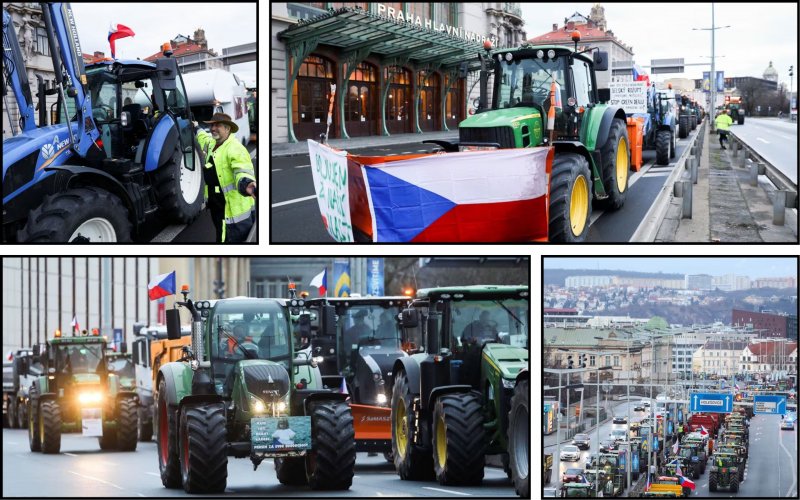In the Czech Republic, hundreds of farmers protested on Monday, February 19, against the European Green Deal, which imposes restrictions to combat climate change, high energy prices, and bureaucracy.
They drove their tractors to the center of Prague near the Ministry of Agriculture and blocked one lane of the city's main road, Reuters reports.
It is noted that in 2024, similar protests took place in Poland, France, Germany, Spain, and Italy.
"We came today mainly because of the bureaucracy around agriculture," said farmer Lukas Melikhovsky.
The government said that the organizers of the demonstration had little to do with real agriculture.
"Today's demonstration has little to do with the fight for better conditions for farmers," Prime Minister Petro Fiala said on X (Twitter), adding that some of its organizers were pro-Russian or had other political goals.
It is noted that the Agrarian Chamber of the Czech Republic is also planning protests together with other European farmers at the border points on Thursday, February 22. However, its members did not join the protest on Monday. The AK is planning protests against:
- EU agricultural policy related to the fight against climate change;
- market distortion;
- low purchase prices arising from surpluses against the background of cheap imports from outside the bloc, in particular from Ukraine.
As RMF24 reported, in Poland on Tuesday, February 20, farmers started a general strike. They are once again blocking highways and checkpoints on the border with Ukraine in order to limit the import of agricultural products. Hunters joined the campaign due to hunting restrictions introduced by the Ministry of Climate and Environment.
Earlier, EcoPolitic wrote, that the head of the European Climate Fund (ECF), Professor Laurence Tubiana, stated that Russia is trying to damage the green transition Europe through diplomacy and propaganda.
As EcoPolitic previously reported, according to the data of the EU Copernicus climate and weather monitoring service, in 2023 the average temperatures exceeded the pre-industrial period by 1.52°C.





